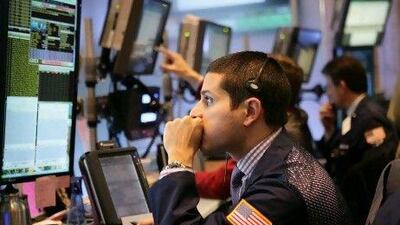Global equity markets are driven, according to the old adage, by greed and fear.
The greed factor is the urgency investors feel when they believe share values are going to rise. Nobody wants to miss out on the big profits to be made when a bull run is in full swing.
But it is then that the fear element takes over. Having made a decent return on paper, no investor, professional or amateur, wants to lose that profit when the bears rear their ugly faces again. The temptation is to crystallise profits by selling, which, of course, sends markets into a downward spiral again.
It's a self-fulfilling cycle, and we've seen it in practice worldwide over the past couple of months, and in the UAE, which for once did not miss out on the general upturn in global equity values. But is the rise a realistic and sustainable one, or will the old pattern reassert itself?
The first thing to appreciate is that the recent global bull run was generated primarily from the US. Despite all the talk of the West-East tilt, in which economic power is thought to be slipping away from Europe and the US towards Asia, the American markets still dominate world equity trading.
A successful day on Wall Street usually sets the tone for the opening on Asian markets a few hours later, and the feel-good factor can continue for the rest of the day, catching the Middle East and Europe (sometimes) in its wake.
But when you look at American market details, it's harder to pin down the real factors behind the equity surge. The figures are distorted by the falling value of the dollar, which exaggerates the gains on shares, but which is a fact of life global investors are increasingly going to have to live with. There have been some good figures at a macroeconomic level from the US, with a return to employment-led growth apparently under way. But most commentators still feel there is a significant risk these improving indicators could be knocked off course by events elsewhere in the world.
Outside the US, there are real fears in virtually all the important economic regions. Europe, of course, is still on a knife-edge. There are significant question marks over the Greek bailout, and continuing threats to several euro-zone economies and to the region's banking system. Europe is by no means out of the woods, despite the aggressive actions of the European Central Bank in making cheap money available.
In Asia, supposedly the engine that will pull the world out of the ditch of recession, there are still worries about inherent vulnerabilities in the Chinese and Indian economies. The Chinese property bubble retains the capability to burst at any time, while Indian growth forecasts are falling, with the economy bedevilled by a series of financial and business scandals that threatens to distract policymakers at a crucial time.
The other big global worry is closer to home. Speculation about what might happen in the stand-off between the US and Iran over nuclear power has reached fever pitch. The potential threat to world energy supplies, and economic growth, is being factored into many trading scenarios for the latter part of the year.
In the UAE, the Dubai Financial Market has had a good run, hitting a two-year high last week on some signs that volumes - miserable for most of that period - were returning. But recent weakness suggests the old pattern could be reasserting itself. In any case, the real damage to Dubai's stock market was done well before the great credit crisis of 2008-2009, so there is a lot of ground to make up.
Perhaps the best bellwether of the Dubai economy is the share price of DP World, the ports group whose shares are traded in the emirate and in London. These have performed well in the past couple of months but are still way off the price last summer, and miles away from the 2007 flotation price.
The lesson to be taken from all this is: don't get carried away, either on global equity prospects or those for the UAE. We are still in a post-shock phase in financial markets, and any future movement is just as likely to be down as up.

